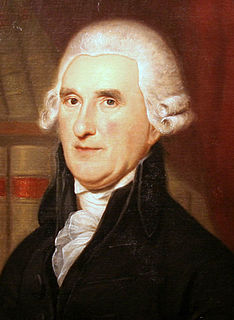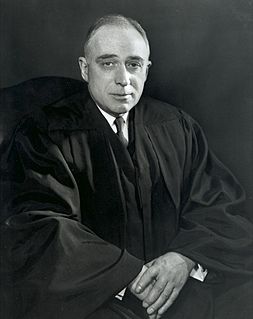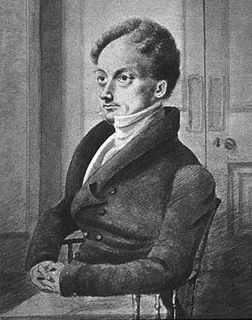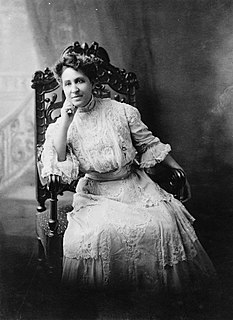A Quote by Thomas McKean
The true liberty of the press is amply secured by permitting every man to publish his opinion; but it is due to the peace and dignity of society, to inquire into the motives of such publications, and to distinguish between those which are meant for use and reformation, and with an eye solely to the public good, and those which are intended merely to delude and defame. To the latter description, it is impossible that any good government should afford protection and impunity.
Quote Topics
Afford
Any
Between
Delude
Description
Dignity
Distinguish
Due
Every
Every Man
Eye
Good
Good Government
Government
His
Impossible
Impunity
Inquire
Intended
Latter
Liberty
Man
Meant
Merely
Motives
Opinion
Peace
Press
Protection
Public
Public Good
Publications
Publish
Reformation
Secured
Should
Society
Solely
Those
True
Use
Which
Related Quotes
The liberty I mean is social freedom. It is that state of things in which liberty is secured by the equality of restraint. A constitution of things in which the liberty of no one man, and no body of men, and no number of men, can find means to trespass on the liberty of any person, or any description of persons, in the society. This kind of liberty is, indeed, but another name for justice.
[A] republic . . . [is] a government, in which the property of the public, or people, and of every one of them was secure and protected by law . . . implies liberty; because property cannot be secured unless the man be at liberty to acquire, use or part with it, at his discretion, and unless he have his personal liberty of life and limb, motion and rest, for that purpose.
The good citizen will demand liberty for himself, and as a matter of pride he will see to it that others receive the liberty which he thus claims as his own. Probably the best test of true love of liberty in any country is the way in which minorities are treated in that country. Not only should there be complete liberty in matters of religion and opinion, but complete liberty for each man to lead his life as he desires, provided only that in so doing he does not wrong his neighbor.
The dissemination of the individual's opinions on matters of public interest is for us, in the historic words of the Declaration of Independence, an 'unalienable right' that 'governments are instituted among men to secure.' History shows us that the Founders were not always convinced that unlimited discussion of public issues would be 'for the benefit of all of us' but that they firmly adhered to the proposition that the 'true liberty of the press' permitted 'every man to publish his opinion'.
The difference between a man who is led by opinion or emotion and one who is led by reason. The former, whether he will or not, performs things of which he is entirely ignorant; the latter is subordinate to no one, and only does those things which he knows to be of primary importance in his life, and which on that account he desires the most; and therefore I call the former a slave, but the latter free.
Whenever the powers of government are placed in any hands other than those of the community, whether those of one man, of a few, or of several, those principles of human nature which imply that government is at all necessary, imply that those persons will make use of them to defeat the very end for which government exists.
Liberty is a word which, according as it is used, comprehends the most good and the most evil of any in the world. Justly understood it is sacred next to those which we appropriate in divine adoration; but in the mouths of some it means anything, which enervate a necessary government; excite a jealousy of the rulers who are our own choice, and keep society in confusion for want of a power sufficiently concentered to promote good.
Civil rights are those which appertain to man in right of his being a member of society. Every civil right has for its foundation some natural right pre-existing in the individual, but to the enjoyment of which his individual power is not, in all cases, sufficiently competent. Of this kind are all those which relate to security and protection.
Every man is of importance to himself, and, therefore, in his own opinion, to others; and, supposing the world already acquainted with his pleasures and his pains, is perhaps the first to publish injuries or misfortunes which had never been known unless related by himself, and at which those that hear them will only laugh, for no man sympathises with the sorrows of vanity.
Surely nowhere in the world do oppression and persecution based solely on the color of the skin appear more hateful and hideous than in the capital of the United States, because the chasm between the principles upon which this Government was founded, in which it still professes to believe, and those which are daily practiced under the protection of the flag, yawn so wide and deep.
In short, it is the greatest absurdity to suppose it in the power of one, or any number of men, at the entering into society, to renounce their essential natural rights, or the means of preserving those rights; when the grand end of civil government, from the very nature of its institution, is for the support, protection, and defence of those very rights; the principal of which, as is before observed, are Life, Liberty, and Property.
No organism can afford to be conscious of matters with which it could deal at unconscious levels. Broadly, we can afford to sink those sorts of knowledge which continue to be true regardless of changes in the environment, but we must maintain in an accessible place all those controls of behavior which must be modified for every instance. The economics of the system, in fact, pushes organisms toward sinking into the unconscious those generalities of relationship which remain permanently true and toward keeping within the conscious the pragmatic of particular instances.
The basis of our governments being the opinion of the people, the very first object should be to keep that right; and were it left to me to decide whether we should have a government without newspapers or newspapers without a government, I should not hesitate a moment to prefer the latter. But I should mean that every man should receive those papers and be capable of reading them.
































